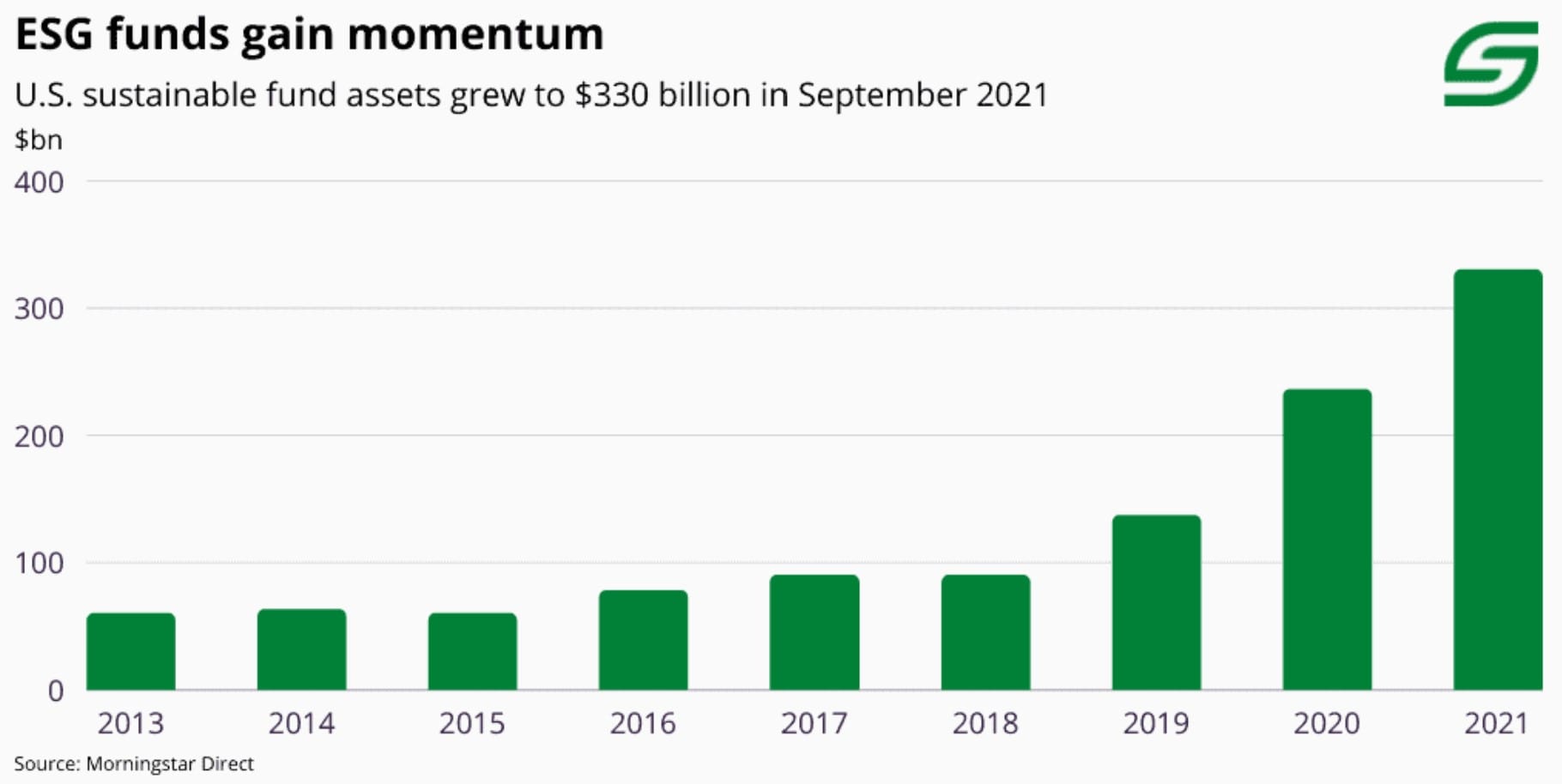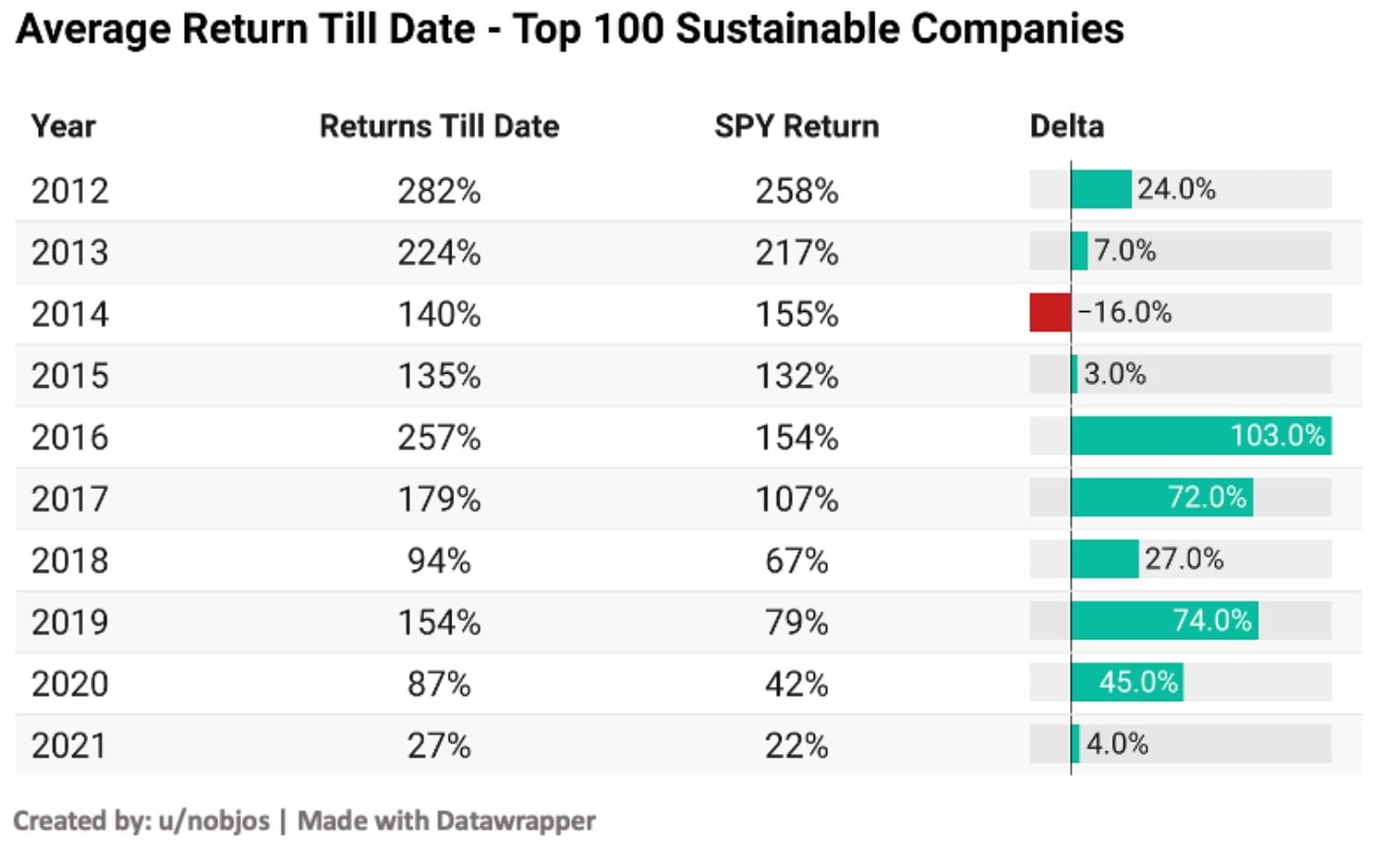| The popularity of sustainable investing has grown alongside other young, but not new, ideologies in recent years. These are ideas lending themselves towards a more environmentally and ethically conscious worldview that many investors have embraced, hoping to pitch in a little toward progress and make some capital gains along the way. It’s a valiant resolution to have for sure, we’d never question those intentions, but what we should question is the profitability of this venture. Is investing in sustainable companies truly a good idea, from an investor’s perspective? Social proof As of September 2021, there were over 7,400 ESG funds established globally, compared to just 4,153 at the end of 2020, a 31% move in less than a year. That’s globally, but in the US alone we saw a 59% jump in the total number of funds in 2020 alone. In 2018, the AUM held by those nominally dubbed “ESG funds” was still just under $100 billion, but before 2021 was over that number had topped $330 billion, more than a three-fold increase within a few years' time.  So great, it’s a trend, cool. But what about the profitability of such investments? So great, it’s a trend, cool. But what about the profitability of such investments?
Performance proof When we zero in on the performance aspect of sustainable investments, we find that there seems to be some support for them here too. This data comes from Market Sentiment, which analyzed 56 different US companies from Corporate Knight’s most sustainable rankings, filtering for businesses with revenues of $1 billion or higher. The outcomes are shown below. 
Source—Market Sentiment Sustainable companies outperformed the S&P 500 (SPY) on various time periods analyzed, with a whopping 38% overperformance if held through the decade mark. If we look at a more detailed overview that provides an annual breakdown, the results indicate much of the same. Over the last ten years, there was only one year where you’d have lagged the S&P by investing in these select companies. 
Source—Market Sentiment The verdict? Sustainable investing can be a good strategy for both your wallet and the world, as cliché as it sounds. Every investor has their own criteria, so there’s no guarantee you’d have made similar gains by handpicking your own stocks or funds based on your own parameters. Nevertheless, it does seem that investing in more sustainable businesses over long time periods can be a healthy strategy to add to your investing repertoire. |
No comments:
Post a Comment